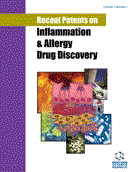Abstract
Atopic dermatitis is an immunologic disease that results in allergic inflammations of the skin. Cytokines are involved in the negative regulation of immunopathogenesis of atopic dermatitis. Negative immune regulation is also achieved by immune cells in addition to cytokines which are subsequently regulated by a counter-regulatory mechanism. Allergen tolerance is an important aspect of the treatment of atopic dermatitis. Recently, the IL-27, IL-21, and IL-10 cytokines were found to be important components of the counter regulatory mechanism that terminates immune response, and protects the host from excessive immune responses. IL-10 and TGF-β are well-known to be involved in the immune tolerance. IL-10 and IFN-γ are promising cytokines with respect to the prevention of allergen sensitization and the induction of allergen-specific tolerance. In particular, IFN-γ has unique tolerogenic effects with respect to pre-sensitized allergens, especially in atopic dermatitis. In this review, the role of cytokines in the immune tolerance and relevant patents are reviewed, and therapeutic strategies are presented based on the immunologic architecture of AD.
Keywords: Atopic dermatitis, counter regulation, cytokine, IFN-γ, IL-10, regulatory B cell, regulatory T cell, TGF-β, tolerance, allergen-specific tolerance.
 35
35


















